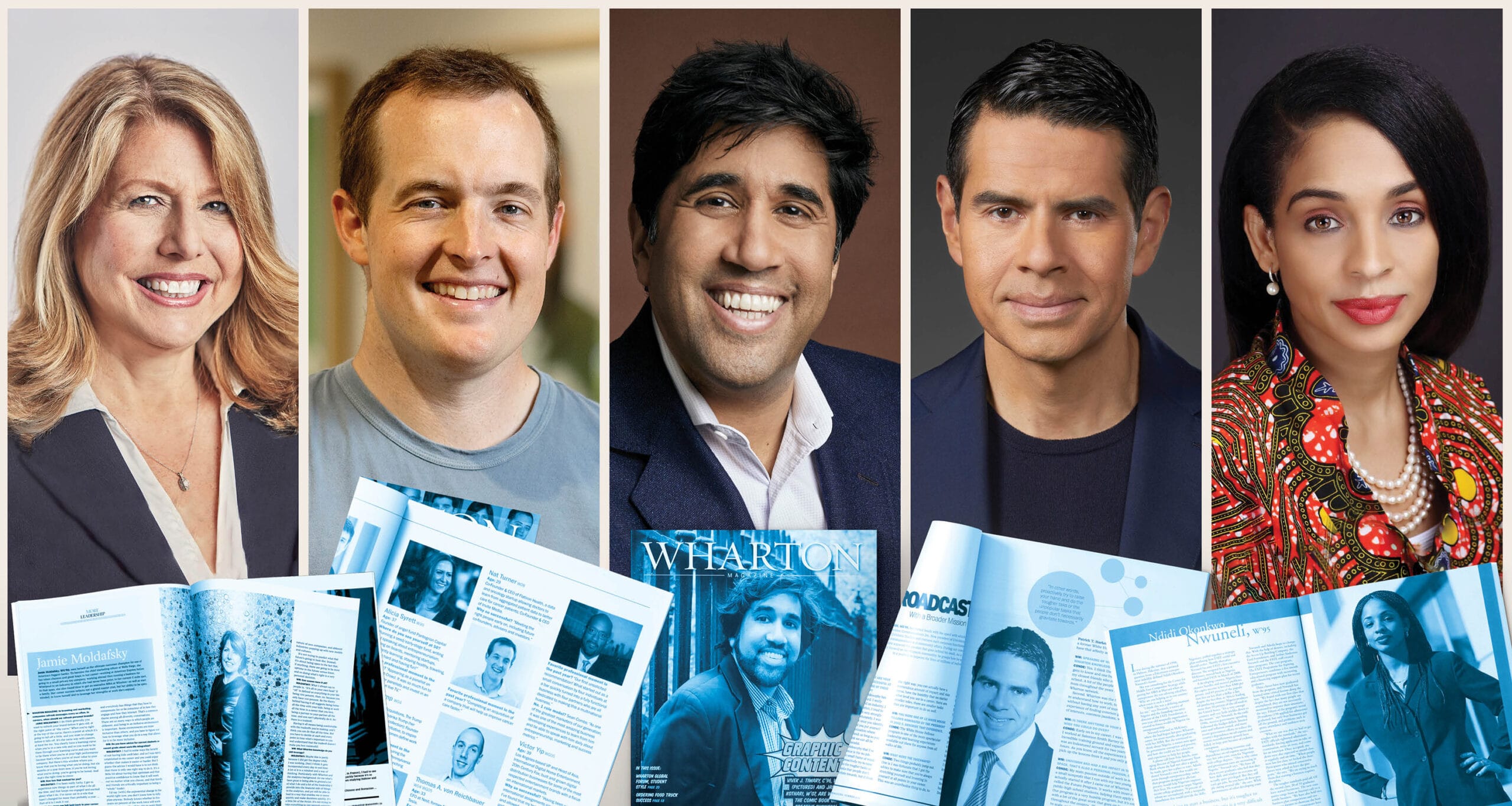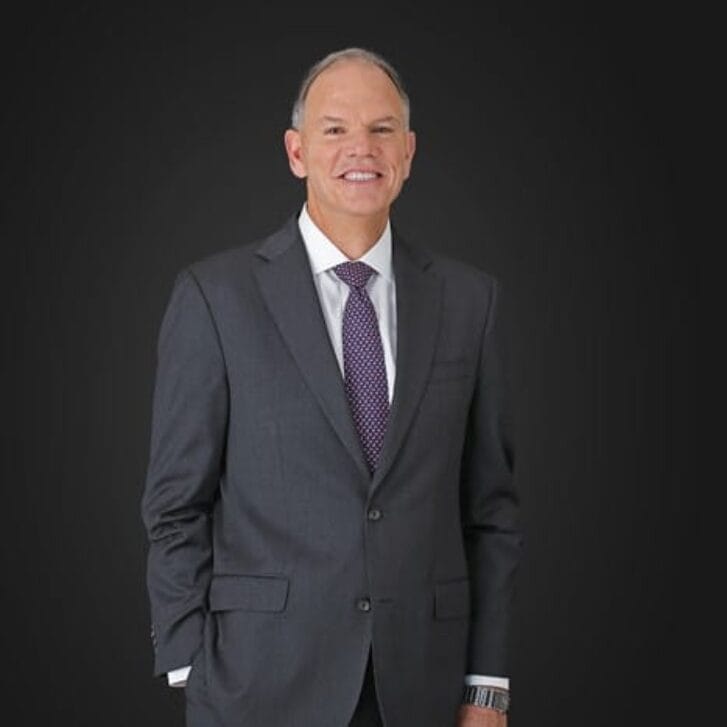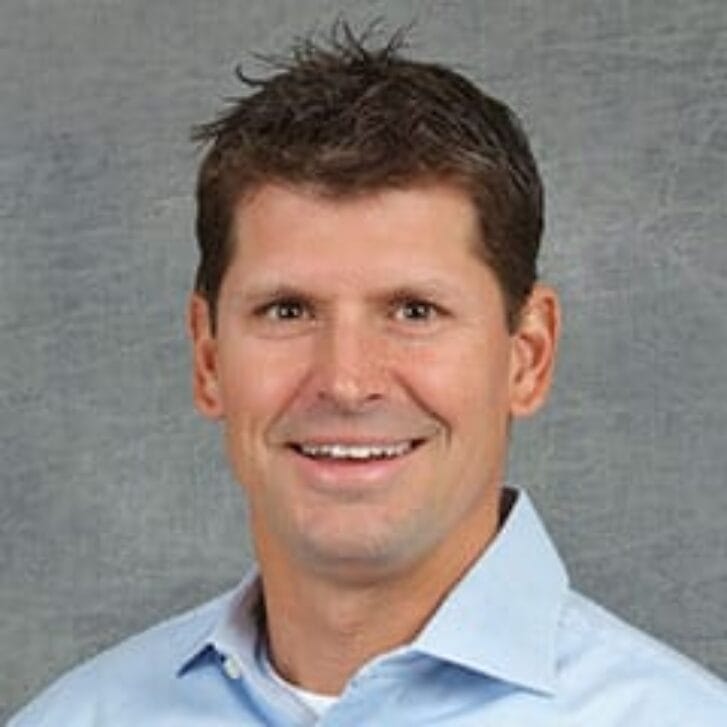THE KING OF CARDS
After the enormous success of his health-care startup, Nat Turner W08 pursued a different passion — the growing business of collectibles.

Nat Turner W08, Collectors chairman and CEO
Nat Turner refers to himself as a nerd a lot. On one hand, he’s right: He’s a dad who still plays with trading cards. (As we speak, he’s holding a Kobe Bryant.) But that’s not the whole story. In 2021, the New York City resident led a group of investors in purchasing Collectors Universe, the parent company of 30-year-old Professional Sports Authenticator, the leader in authenticating and rating items like trading cards, pins, memorabilia, and autographs. (Think Moody’s, but for Pokémon.) Turner and his group then took Collectors, which was valued at $853 million, private. Trading cards are one of Turner’s longtime hobbies — he was already a PSA customer — but seeing as he’s a savvy entrepreneur who has launched and sold two successful startups, it’s also a continuation of what he does best: recognize a marketplace opportunity and build a business to meet demand. Turner believed PSA was “under-investing in technology and not scaling like they should. I was a familiar face, and they were getting a lot of pressure to invest.”
When Turner was featured in this magazine’s “40 under 40” list, it was because he and fellow Wharton alumnus Zach Weinberg were on their way to selling two companies by the time they were 32. First up was Invite Media, a pioneering digital ad startup purchased by Google in 2010. Next, the duo spent a decade on Flatiron Health, which collects and shares data on oncology patients to help doctors make informed care decisions. Pharma company Roche purchased Flatiron for $2.1 billion in 2020. “When we started Flatiron,” says Turner, “we never would have expected Roche — which is the most important company when it comes to cancer — would be interested in a technology company. But they had a vision.” Those big exits enabled him to become an angel investor; he and Weinberg have funded more than 500 companies, ranging from BarkBox to Plaid to The Citizenry.
In many ways, Turner — a collector since childhood — has more experience with trading cards than with tech and data. The concept might seem twee to the uninitiated, but collecting is a booming business, with the sports-card market alone expected to grow by $6.71 billion from 2021 to 2026, according to a 2022 market research report. Nostalgia is popular in consumer cultures across the globe, and that was only amplified during the pandemic. “People went home and were working from home and rekindled hobbies,” says Turner. “EBay took off, Etsy took off, and cards took off.” And according to Turner, people began sending in cards at a rapid clip. PSA had a 13-million-card backlog and was authenticating 22,000 cards a day. “You can do the math. We emailed every customer and said we’re closed for business while we catch up. It was over a year.”
The Collectors offices around the world, from Shanghai to Paris, are staying busy. While sports collectibles are the company’s bread and butter, Pokémon makes up 30 percent of its business. And not just vintage cards — there’s also a market for just-minted goods. (The winning bid in a February auction for a one-of-a-kind 2022 World Cup Messi sticker authenticated by the company was $139,200.) Items that PSA receives are authenticated, rated, encapsulated in tamper-proof plastic, and marked with certificate numbers and QR codes. “When you buy a piece of art or a bottle of wine, your first question is, ‘Is it real?’” says Turner. “Then you want to know what condition it’s in.” PSA researchers are forensic experts who do everything from analyzing the ink used for signatures to x-raying coins. In other countries, collectibles come in all forms: In India, cricket player cards are popular; in Japan, there are sushi chef cards. Magic: The Gathering and Marvel cards are big, too. PSA evaluates them all.
Turner’s plan is to take Collectors public again after further investment in technology and the launch of new products, like NFTs of the IRL collectibles. The larger investment group he put together to purchase Collectors also bought Goldin Auctions in 2021, a site that runs auctions on the kinds of goods Collectors customers get authenticated. “There are very few things more powerful than nostalgia,” says Turner. “Our mission is helping collectors pursue their passion.”
LEADING THE FUTURE OF MEDIA
Unprecedented challenges mean exciting opportunities for NBCUniversal News Group’s top executive, Cesar Conde WG99.
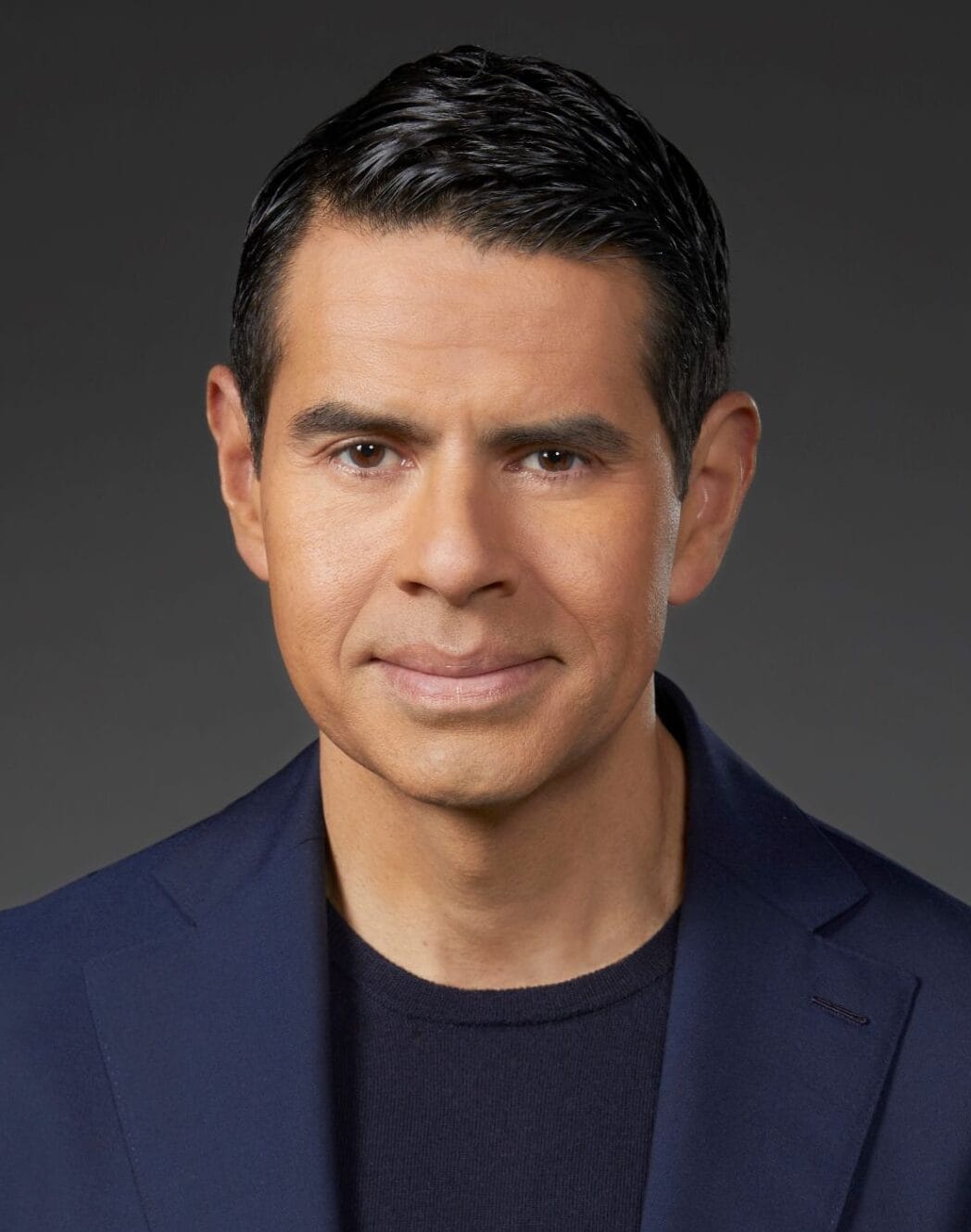
Cesar Conde WG99, NBCUniversal News Group chairman
When Cesar Conde was tapped in 2020 to be the first-ever chairman of NBCU’s news group — overseeing NBC News, MSNBC, and CNBC — the media was covering a pandemic, an economic crisis, and social justice unrest, while the industry itself was beleaguered by misinformation, distrust, and polarization. What Conde saw in all of this: an opportunity. He aligned the group’s various platforms under one umbrella and took steps to foster better collaboration among the newsrooms. “Our audience is in control, so we took an omnichannel approach,” Conde says from his New York City office. “Maybe a great investigative story originated on a podcast. Now we can put that story on our NBC News streaming platform, run the business side of it on CNBC, and turn it into a documentary. Having all these brands and talent together is fundamental to our success. And most importantly, it has been crucial to produce the highest quality journalism.”
These challenges aren’t what Conde was facing when he was featured in this magazine a decade ago as president of Univision Network. He had quickly climbed the ranks to the C-suite and cited how privileged he felt to be serving the rapidly growing Hispanic-American community. He brought that experience to NBCU, not only by overseeing Telemundo, but by being the architect of the company’s Fifty Percent Challenge Initiative, which aims to have a newsroom that’s 50 percent women and 50 percent people of color. (Three years in, they’ve made steady progress toward those aspirations.) To achieve this, he launched NBCU Academy, which provides resources and talent to assist 45 partner universities and colleges to train future journalists. “We want a diversity of perspectives, socio-economics, and geography in our newsrooms,” Conde says of the programs. “But most importantly, we hope to have sparked media companies to create similar initiatives, which is great for the entire profession.”
THE BRAND WHISPERER
After more than 15 years at Wells Fargo, Jamie Moldafsky WG89 brings her marketing and communications prowess to a very different industry.
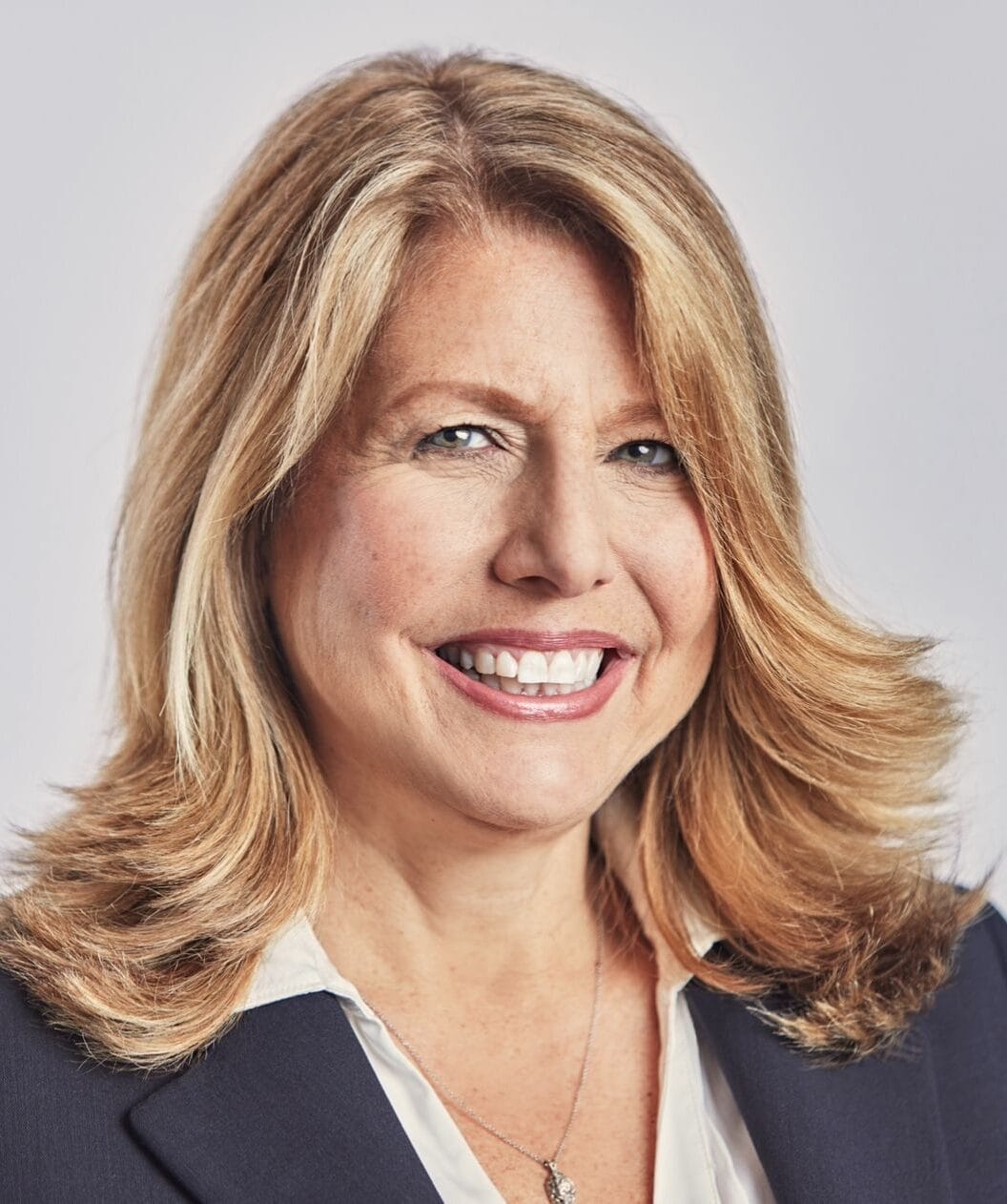
Jamie Moldafsky WG89, Nielsen chief marketing and communications officer
What do American Express, Whirlpool, Wells Fargo, and Nielsen have in common? They’re all legacy brands — and all employers listed on the résumé of Jamie Moldafsky, who’s made a career of helping established companies transform. “Nielsen turns 100 years old this year,” Moldafsky notes from her home in San Francisco. “It’s a core part of the media industry and will be partnering with and leading an industry that’s going through an exponential transformation.”
When she joined the audience-measurement pioneer as chief marketing and communications officer in 2020 after 15 years at Wells Fargo — the focus of her profile in the Fall 2013 cover story on women in leadership — the data-driven company was determined to become more customer-oriented; to achieve that, it needed strong marketing leadership. “After having run marketing in a very large organization, the chance to get in and build something from scratch was very exciting,” Moldafsky explains. She doesn’t necessarily see the move from banking to media as a big leap. Her roles at Wells Fargo and Whirlpool were mostly B to C, “but this is B to B to C,” says Moldafsky. “We help the media industry better understand their audience, so the audience gets better content, better advertising, and more relevant engagement.”
Moldafsky has another equally important “audience” to consider: the employees. When Nielsen was bought by a private equity firm in 2022, she says, it was critical to focus on the team: “Culture and customer are two sides of the same coin. You can’t have great customer relationships if you don’t have an engaged employee base.” To her thinking, diversity and inclusion are a priority: “We can’t represent everybody around the world if we don’t measure everybody. And to measure everybody, we must look like everybody. Being able to marry our purpose and our values with our customer is powerful. When you get all that aligned, it’s very centering for an organization.”
THE SHOW MUST GO ON
It’s been a wild (and award-winning) ride for Vivek Tiwary C96 W96 on the way to bringing one of the all-time best-selling albums to Broadway.

Vivek Tiwary C96 W96, award-winning Broadway producer and storyteller
Vivek Tiwary’s COVID story is like riding a roller coaster. The slow chug upward was the eight years he spent turning Alanis Morissette’s smash-hit album Jagged Little Pill into a musical, which he lead-produced. It opened on December 5, 2019, to critical and popular acclaim and was grossing a million dollars a week in ticket sales — a rare feat on Broadway. Then came the stomach-dropping fall as the pandemic shut the show down after only 101 days. After that, a few loops: 15 Tony Award nominations, the most of any show that year, and two wins. A reopening and abrupt omicron-caused closing. A Grammy for the soundtrack. The show is now touring and heading to London soon. “It’s a rewarding and fascinating journey,” Tiwary says from his New York City home, “but one that is not without frustrations and, without being melodramatic, heartbreak.”
Tiwary is used to the long game. When he appeared on this magazine’s cover in 2014, his award-winning graphic novel The Fifth Beatle had become an international best-seller, and the film version was set for production the following year. The movie never happened. “I’m glad we didn’t shoot a film, then watch it not succeed because the film industry was changing,” he says. His doggedness paid off; he confirms that a major streaming service has picked up a limited-series adaptation of the work.
Unsurprisingly, given all the 2020 Broadway productions he attended at the pandemic’s height, Tiwary had an early strain of the virus. Recovery was tough, and the year was slow for artists, but the ever-optimist used the time wisely. He made sure Musicians on Call — his nonprofit that taps musicians (think Bruce Springsteen and Pharrell Williams) to perform songs for those suffering from illnesses — was up and running. He also took the forced slowdown as a chance to home in on future projects. The formula he landed on is a sharpened version of his past and his passions. “I work exclusively with high-profile music, which I turn into narrative entertainment that is platform-nimble,” says Tiwary. “Music comes first; story is a close second. Then we figure out where and how to share it.”
A LIFETIME OF CULTURAL DIPLOMACY
Ndidi Okonkwo Nwuneli W96 has dedicated her career to promoting entrepreneurship, agriculture, nutrition, and philanthropy in Africa.

Ndidi Okonkwo Nwuneli W96, LEAP Africa founder and social entrepreneur
Ndidi Okonkwo Nwuneli’s 2021 TED talk about creating a sustainable food ecosystem has been viewed nearly two million times. She has received Harvard Business School’s Alumni Achievement Award, is on the board of the Rockefeller Foundation, and has impacted millions through her work on leadership in Africa. But a real standout moment is the time last year that she got Bill Gates to put an apron on over his suit, get onstage, and make a salad with fonio, a nutritious West African grain. She’s spent the past 15 years making sure people everywhere know about all the diverse cuisines from Africa’s 54 countries, as well as using food to build cultural bridges. “Look at how sushi went from a novelty to mainstream,” Nwuneli says from her home in Lagos. “Most people have never been to Japan, but they love sushi.”
As a child growing up in Nigeria, Nwuneli was so fascinated with agriculture that green beans sprouting in the family garden were cause for excitement. In 2000, after working for McKinsey & Company’s Chicago office, she returned home and began building her youth-based organization LEAP Africa, which is helping to develop the next generation of homegrown leaders (and the focus of her profile that same year in an alumna-focused feature, “Wharton Women Mean Business”). But her passion for those green beans — and the sustainable economic opportunities she saw in food — led her to launch three organizations that are remaking the African ecosystem.
AACE Foods makes spices, flours, and snacks with ingredients sourced from 10,000-plus African farmers and “demonstrates that our locally sourced food can compete with imports,” says Nwuneli. African Food Changemakers creates opportunities for African entrepreneurs to build and scale climate-resilient, sustainable companies. Sahel Consulting partners with governments, foundations, and private companies to provide strategic interventions rooted in “data-driven policymaking and ecosystem solutions,” as Nwuneli says. “It’s been an amazing experience to see the number of jobs we have created and our impact on the lives of farmers, while also addressing critical issues such as malnutrition. Africa has the most available uncultivated and arable land in the world. We should be feeding ourselves and the world.”
Ashley Primis is a Philadelphia-based writer and marketing director for meal delivery service Home Appétit.
Published as “Where Are They Now?” in the Spring/Summer 2023 issue of Wharton Magazine. For more on what our past alumni subjects are doing today, see “40 Under 40 Update” and “More Innovators and Newsmakers.”




















